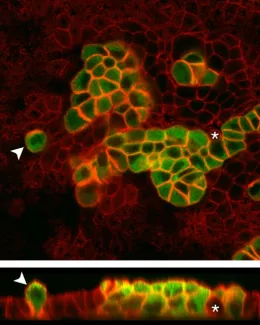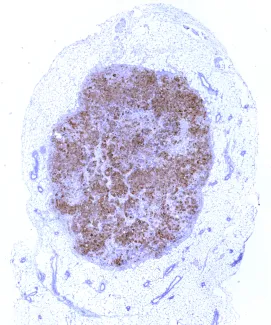Hansen Lab Research | Overview
The vast majority of human malignancies result from adenocarcinomas originating from epithelial cells such as those lining major organs, including the lungs, gastrointestinal and genitourinary tracts, as well as exocrine glands. The majority of such cancers harbor alterations in oncogenes that are well-established to elicit cell transformation, tumorigenesis, invasion and metastasis. These cancers are termed "oncogene-positive" and numerous individualized therapies exist for intervention. In contrast, a smaller but still high fraction of malignancies are termed "oncogene-negative", because they lack readily identifiable alterations in genes that typically drive human cancer. The latter group is moreover characterized by a significantly higher alteration burden and virtual absence of strategies for intervention, thus leaving conventional and ineffective chemotherapy as the only treatment option. It is moreover of note that oncogene-positive cancers often gain characteristics of oncogene-negative malignancies upon the almost inevitable development of resistance to targeted therapy. Extensive sequencing of oncogene-negative cancer genomes have revealed numerous alterations in genes that are essential for normal differentiation and homeostasis of epithelial cells. Thus, the study of normal and transformed epithelial cells essentially becomes two sides of the same coin, and efforts of our lab are focused on this interface, as described in more detail below.


Work from the lab has resulted in significant discoveries with many originating from unbiased approaches, i.e., genetic screens, mRNA-seq and proteomics. Screen results have been followed up with mechanistic studies that have utilized extensive manipulation of gene expression (exogenous expression, shRNA, CRISPR/Cas9, etc) by viral delivery. To this end, we employ a range of biochemical and imaging techniques. Most of our work has been cell-based but we have also performed key in vivo studies. Our work is published in well-reputable journals and further disseminated at conferences in the US, UK and EU. It has also been featured in reviews and previews by others, as well as journal highlights and cover art.
